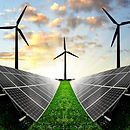
Summit Themes
Get In Where You Fit In
The purpose of our summit is to expose individuals and groups to contemporary sustainable, intentional communities. Whether you are here to sharpen your skill set in one of our themed areas or if you are looking to create a more definite plan for repatriation and/or sustainable development in your current country/state, you are in the right place!
Learn:
-
Skills necessary to support or develop sustainable communities
-
How to establish an Intentional Community Living Plan (find the right circle of like-minded families/people, find the best location that is aligned with your future, and learn how to contribute to the community you join/create)
-
How to develop Sustainability Projects that serve the Black/Afrikan community
-
About various intentional communities and how you can contribute to their success
-
How to become self-sufficient in an urban or rural environment; adapt to your situation and provide for your family

COMMUNITY DEVELOPMENT

ALTERNATIVE ENERGY
OurStory (Historic Black Townships)
Contemporary Sustainable Black Communities
Self-Governance/Traditional Family Systems as a Government/Political System
Developing A Sustainable Community
Locating/Supporting Sustainable Communities
Natural Conception and Childbirth
Education/Child Rearing
Solar – Radiant light and heat from the sun; current & evolving technologies.
Wind – Windmills TO mechanical generators and turbines
Biomass – Burning plant material, animal waste, wood and other organic matter.
Hydropower – Power created from falling or fast-moving water
Interpersonal - Energy created, exchanged and amplified by like-minds

SUSTAINABLE AGRICULTURE/LAND MANAGEMENT

ENVIRONMENTAL
JUSTICE
Food sovereignty puts ownership of food systems into the hands of the communities themselves. It involves a sustainable, long-term process in which a community can establish its own food systems and produce its own local products without being subject to fluctuating international markets or dependent on external sources for the acquisition of seeds. Food sovereignty takes into account the cultural and social, political, geographical and environmental context of the community in order to develop an appropriate plan of action to address particular problems and needs. Tune in to learn how to feed yourself, your family and your community.
Grow your own food
Urban vs rural gardening/farming
Types of Gardening/Food systems
Soil Health
Environmental justice centers around addressing environmental injustice, through education, advocacy and policy. The disproportionate exposure of marginalized communities to harm from hazardous waste, resource extraction, and other land uses from which they do not receive benefits is rooted in institutionalized racism.
Learn about current policies that affect our communities
Advocate for change
Civic engagement
Grassroots/Frontline Solutions

WATER PURIFICATION & IRRIGATION

FINANCES/ECONOMICS
Sustainable finance is the practice of creating economic and social value through financial models, products and markets that are sustainable over time. Tune in to learn how to make the most of your current finances.
Esusu Systems
Cooperatives - formal & informal
Money systems – alternative currency
MicroFinancing
Investing - domestically and abroad
Water, apart from shelter, is the most immediate need for survival. Drinkable water is a vital resource as we can live approx. three (3) days without water. Tune in to find a way to create and maintain a source of clean drinking water for both short- and long-term preparedness.
Water catchment & storage
Green Infrastructure
Water purification
Waste and repurposing

WHOLISTIC HEALTH

ECO-FRIENDLY BUILDING PRACTICES
Physical, mental and spiritual health are vital components of community development. If the individuals in the community are ill, the community is unhealthy. Tune in to regain balance internally and externally as a collective and as an individual.
Cleansing Ourselves
Internal Health: The Science of Food
Meditation, Energy, MA'AT
Herbology and First Aid Tinctures
Look to your environment for current local resources to build. An overview of possible materials (recycled, sustainably harvested, organically grown, etc.). Tune in to learn how to create, build or upgrade your current space.
Vernacular Architecture
Natural Building Materials
Dif Types of Shelters
Biomimicry
Building vs Purchasing
Alternative Energy

CLIMATE
SURVIVAL/PREPAREDNESS

WASTE MANAGEMENT
Survival Basics
Modern preparedness
Climate/Disaster Preparedness
Food storing systems
Off-grid technology
Community preparedness
Reactive vs Proactive: Strategic responses and proactive approaches
Disposal systems
Permaculture Principal of zero waste
Recycling
Composting
Transportation – Biodiesel
Salvage Economy/Upcycling



